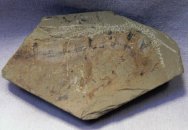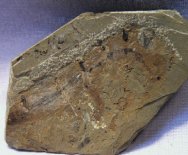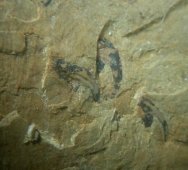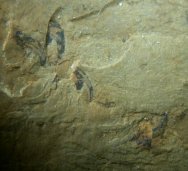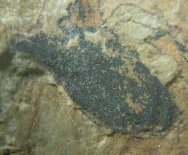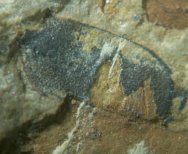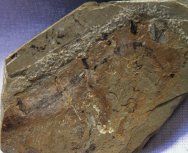 Description:
The discovery of the Chengjiang Biota by Hou Xian-guang in 1984
resulted in a clear window on what is known as the Cambrian Explosion.
The diversity of soft-tissue fossils is astonishing: algae, medusiforms,
sponges, priapulids, annelid-like worms, echinoderms, arthropods
(including trilobites), hemichordates, chordates, and the first
agnathan fish make up just a small fraction of the total. Numerous
problematic forms are known as well, some of which may have represented Description:
The discovery of the Chengjiang Biota by Hou Xian-guang in 1984
resulted in a clear window on what is known as the Cambrian Explosion.
The diversity of soft-tissue fossils is astonishing: algae, medusiforms,
sponges, priapulids, annelid-like worms, echinoderms, arthropods
(including trilobites), hemichordates, chordates, and the first
agnathan fish make up just a small fraction of the total. Numerous
problematic forms are known as well, some of which may have represented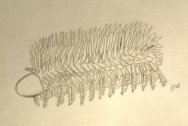 failed attempts at diversity that did not persist to the present
day. failed attempts at diversity that did not persist to the present
day.
The
Lobopodians are small marine and terrestrial animals termed colloquially “velvet
worms” or “worms with legs”. While all Recent
forms are terrestrial, most fossil Lobopodians are marine, and
are known primarily from the Cambrian. Six named genera, each
with a single species, are known from the Chengjiang Biota, making
it the richest source of fossils of the type on Earth. This is
one of the most striking, and quite rare; as of 2004, only some
15 examples were known. The maximum length is 70 mm. It possesses
a sclerotized head shield with 10 paired sclerotic plates, each
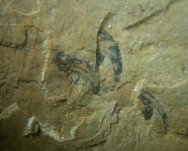 associated with a pair of legs. Each leg bears curved claws which
are thought to have served the creature as an adaptation to crawling
on other organisms. It is most closely related to Aysheaia from
the younger Burgess Shale. associated with a pair of legs. Each leg bears curved claws which
are thought to have served the creature as an adaptation to crawling
on other organisms. It is most closely related to Aysheaia from
the younger Burgess Shale.
This
one is very detailed, with several legs and six of the scerotzed
plates apparent. The plates are reminiscent of those found on
Microdictyon, and are thought by some to represent primitive
eyes. What is even more interesting is that four of the claws
referred to earlier are preserved disarticulated from the limbs.
This is only the SECOND time I have ever seen the claws preserved,
and the FIRST in which the sclerites are preserved in such detail.
|



